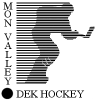|
|
|
 |
Playing Rules |
Note: The ball, and not the player's feet, is the determining factor in judging this infraction.
Clearing is "washed out" by either referee if, in their opinion, any of the following occurred:
A player who, after receiving a misconduct penalty, persists in using obscene or profane language shall be assessed a game misconduct penalty and ordered to the dressing room. In such cases, a substitute shall be allowed.
A broken stick is one which, in the opinion of the referee is unfit for normal play.
Note: Likewise referees should be alert to penalize goaltenders for tripping, slashing, or spearing in the vicinity of the goal.
When opposing players are both stepping on the ball in digging to gain possession, Rule 42a,b applies.
If a violation of this rule occurs, the referee shall order another face-off.
Note: If, after a warning by the referee either of the players fails to take his proper position for the face-off promptly, the official shall be entitled to face-off the ball even though only one player is in position.
Note: This rule shall be interpreted so that a penalty shot will be awarded only when the ball is in the crease at the instant the play is stopped.
Note: If the goaltender has been removed, he may return to the playing surface for the penalty shot.
Note: Where the ball is thrown toward the opponent's goal by the goaltender and it is received by an opponent, the referee shall allow the resulting play to be completed and if a goal is scored by the non-offending team it shall be allowed and no penalty assessed. However, if a goal is not scored, play shall be stopped when the offending team gains possession of the ball, and a minor penalty shall be assessed against the goaltender.
Note-A penalty for high-sticking shall NOT be assessed when a player raises his stick under the assumption that his team has just scored a goal or while he is in the act of shooting.
Note: Below numerical strength means a team is short via penalty and/or the opposing team has pulled their goalie for an extra forward attacker
Note: When a player is checking another in such a way that there is only stick-to-stick contact, such action is not either holding or hooking.
Note: The last player to touch the ball (other than the goaltender) shall be considered the player in possession. In interpreting this rule, the referee should make sure which of the players is the one creating the interference; often it is the action and movement of the attacking player which causes the interference since the defending players are entitled to stand their ground or "shadow" the attacking players. Players of the side in possession of the ball shall not be allowed to run deliberate interference for the ball carrier.
Note: Actual contact means that the goaltender is touched by the attacking player's stick or body.
Note: "Spearing" shall mean the act of poking an opponent with the point of the blade of the stick while holding the stick in one hand or both hands.
Note: Attempt to "spear " or "butt-end" shall include all cases where a "spearing" or butt-ending" gestures is made, regardless whether body contact is made or not.
Note: When a player discards the broken portion of a stick by tossing it to the side of the rink (not over the boards) in such a way so that is does not interfere with play or opposing players, no penalty shall be assessed.
Note: A penalty shall not be assessed if in the referee's opinion a player is unquestionably hook-checking the ball and obtains possession of it thereby tripping the ball carrier.
Note: "Control of the ball" shall mean the act of propelling the ball with the stick. If, while it is being propelled, the ball shall touch the person, stick or shoe of another player or should hit the goal post or go free, the player shall be deemed no longer in control. The intention of this rule is to restore a good scoring opportunity which has been lost by reason of the foul, and therefore, where there is no reasonable scoring chance lost by reason of a foul a penalty shot should not be awarded.
The goal shall not be allowed if the ball has been kicked, thrown or otherwise deliberately directed into the goal by any means other than a stick.
Note 1: A player is "onside" when either of his feet are in physical contact with, or on his own side of the line at the instant the ball completely crosses the outer edge of that line regardless of the position of his stick
Note 2: It should be noted that while the position of the player's feet is what determines whether a player is offside, the question of an offside never arises until the ball has completely crossed the outer edge of the centerline at which the deasion is to be made.
Note: Referees should be careful not to blow the whistle too soon on this play
Note: This rule does not apply to a team below the numerical strength of its opponents. In such cases the ball shall be faced-off at the spot from which the pass was started.
Note: Should the offending team be on the playing surface, the order shall be given by the referee in person. If the offending team is not on the playing surface, the timekeeper, on the instruction of the referee, will convey the order to the offending team. The order may be given to any player, coach, manager, or trainer of the offending team.